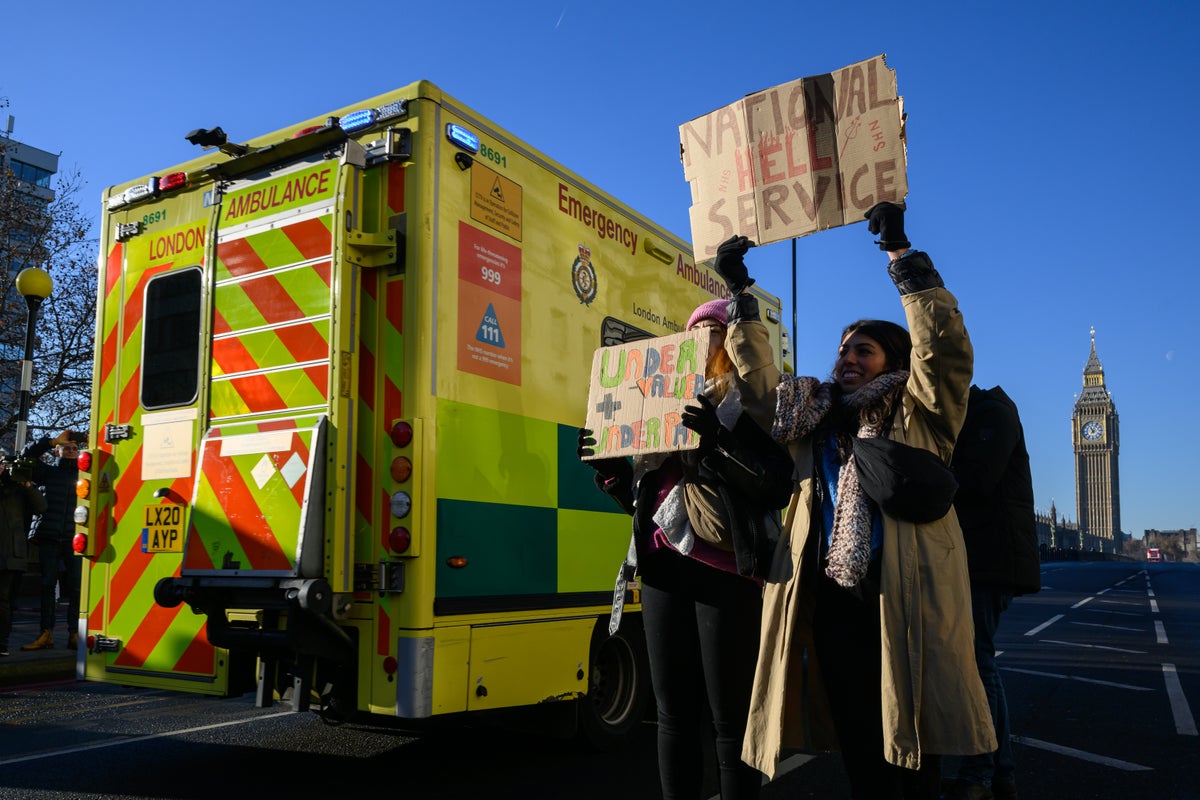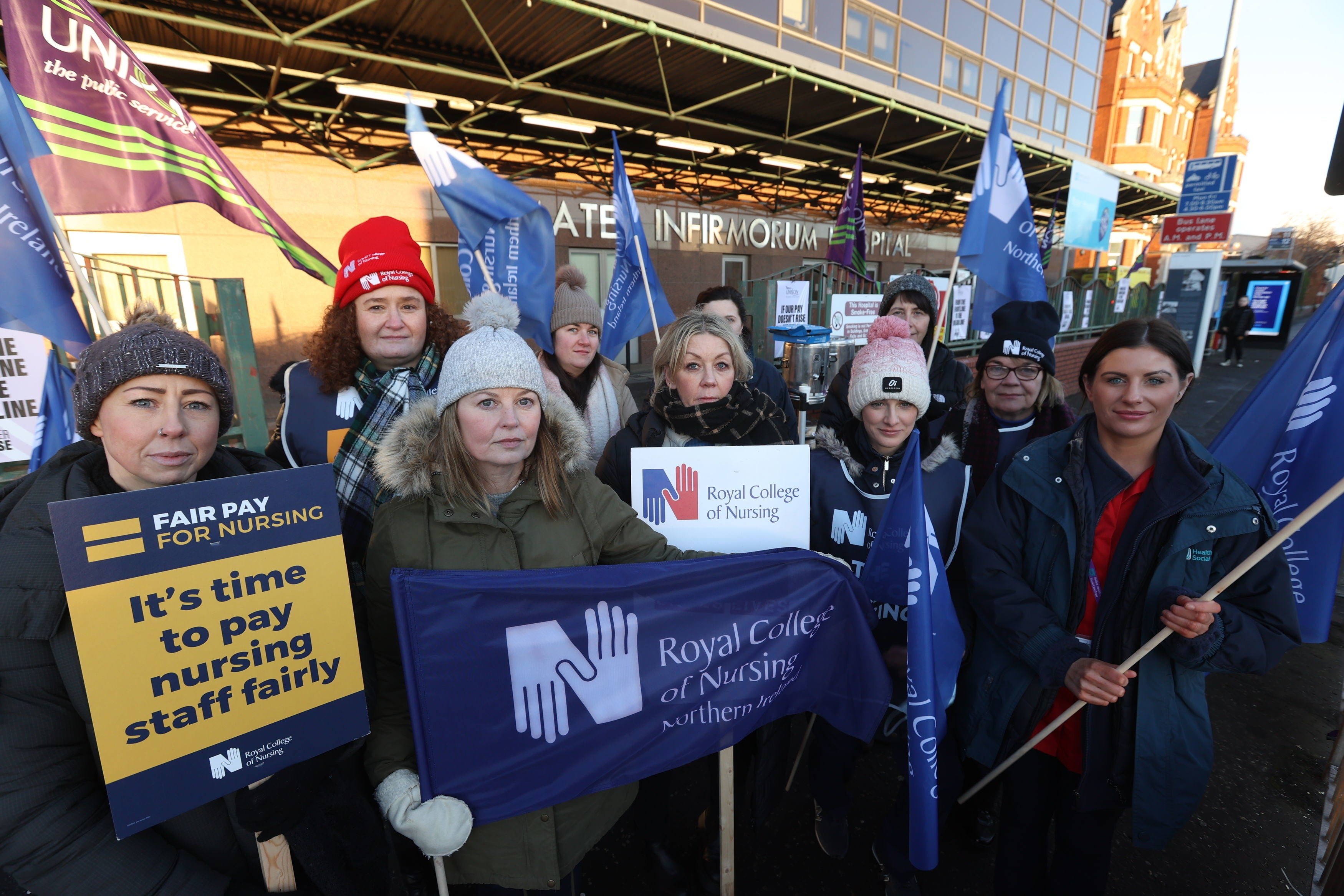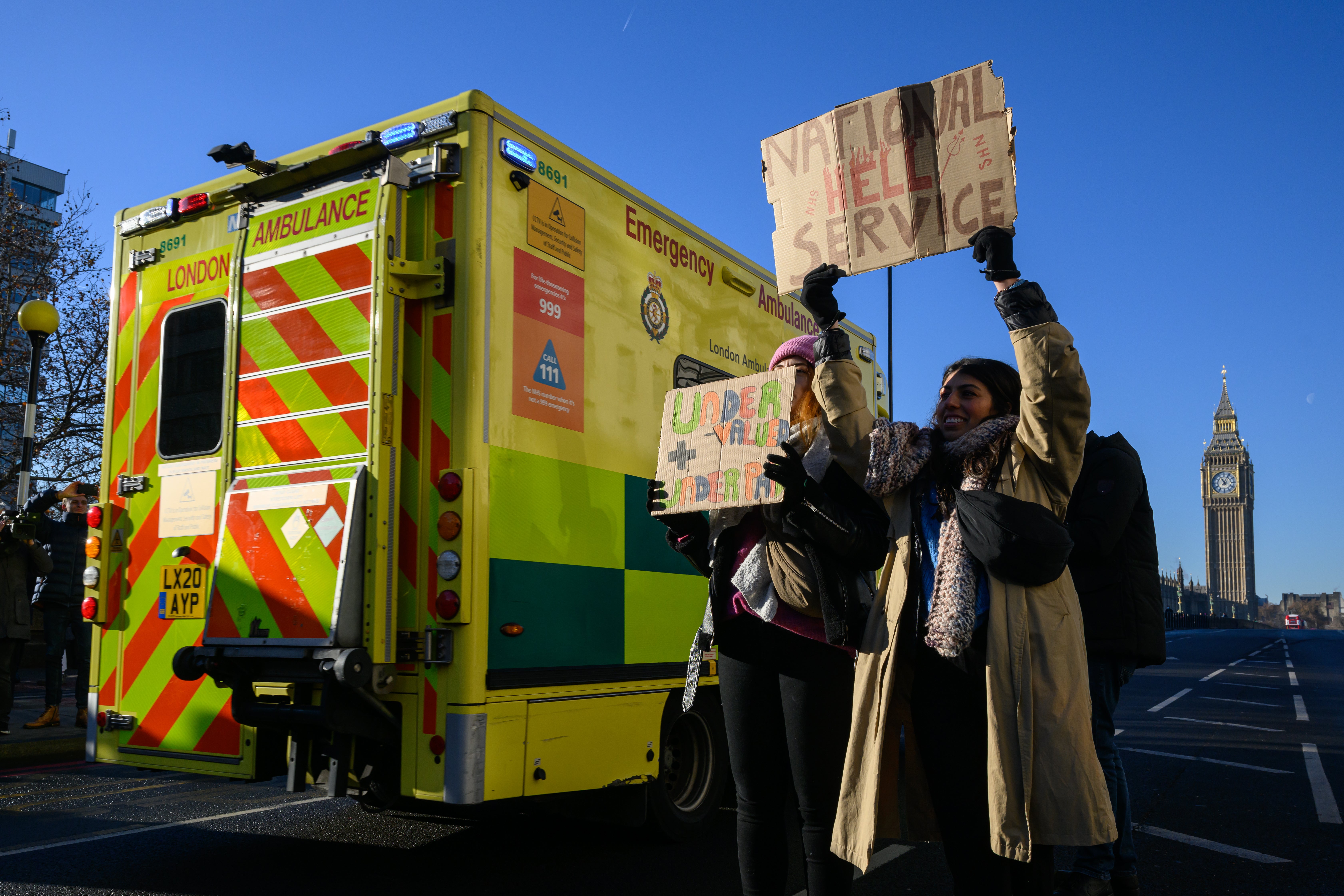
Hospitals have been urged to free up as many beds as they can ahead of strikes by ambulance workers.
A letter sent from health chiefs to hospital managers urged them to speed up discharges of patients who are fit to leave.
Sir David Sloman, NHS England’s chief operating officer, warned of “extensive disruption” during “a very challenging period” as emergency responders from three unions prepare for industrial action on 21 and 28 December.
The coming weeks threaten to be more difficult than usual for the NHS, as provisional figures showed that 16,000 appointments, procedures and surgeries were missed as nurses walked out for 12 hours.
Across England, almost 10,000 staff were absent as nurses staged their biggest strike since the founding of the NHS on Thursday – though government warnings of disruption fell far short as health minister Maria Caulfield said around 70,000 appointments would be lost.
As a second strike date on 20 December looms, Pat Cullen, general secretary of the Royal College of Nursing, urged Rishi Sunak to “get a grip of this before it engulfs the NHS”.
Speaking to The Times, Ms Cullen also accused Steve Barclay, the health secretary, of a “macho” and “confrontational” approach to negotiations with the union.
She said Mr Barclay “is financially driven, and he needs to get to a place where he’s inspired with the value of care and treatment”, adding: “He doesn’t value that because it’s a 90 per cent female profession.”
Nine ambulance trusts in England are expected to be affected by the coming strikes, coordinated by the GMB, Unison and Unite, on 21 December, with eight affected on 28 December.
Unite general secretary Sharon Graham said the government had five days to reconsider its 4 per cent pay offer.
“It must not waste this weekend,” she said, adding: “Ministers need to give themselves a shake and get into serious pay talks or see this strike spread next week.”

NHS bosses are scrambling to lessen the potential impacts of the strikes. A joint letter from Sir David, national medical director Professor Sir Stephen Powis and chief nursing officer Dame Ruth May to NHS trusts and integrated care boards also advised that measures be put in place to ensure ambulance patient handovers are kept to no more than 15 minutes.
Data on Thursday showed ambulance handover delays at hospitals in England had hit a new high, with one in six patients last week waiting more than an hour to be passed to A&E teams.
Just over one in three had to wait at least 30 minutes. The numbers are higher than at any point in recent winters.
Setting out “three essential actions” to “ensure the safety of patients and staff”, the letter asked for confirmation of “system-level operational plans” for ambulance strike days with NHS England regional teams by a deadline of 4pm on 19 December.

The plans would allow for additional support to be considered and arranged, it said. The Police Federation has already suggested police officers may be called upon to drive ambulances.
Advice from the health chiefs also included the prospect of creating “observation areas and additional beds” elsewhere in hospitals.
They called for acute, mental health, and community trusts to continue “to expedite the discharge of all patients who are clinically fit for discharge”.
Press Association contributed to this report







